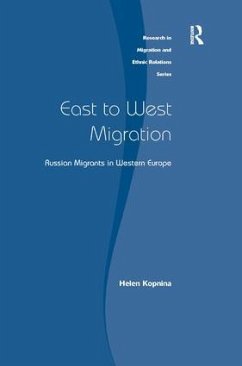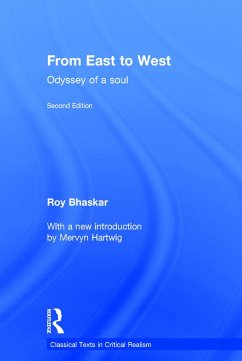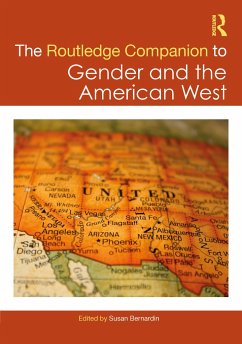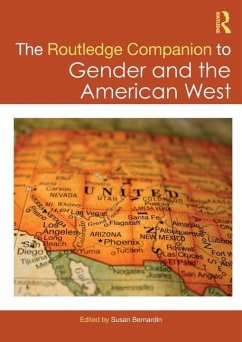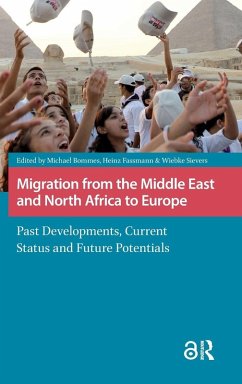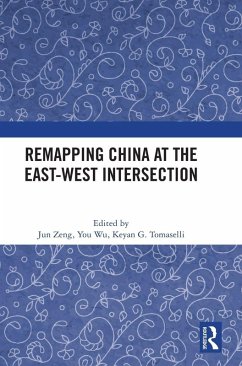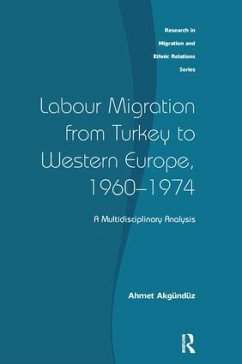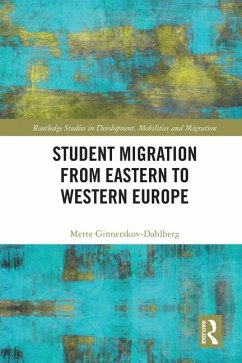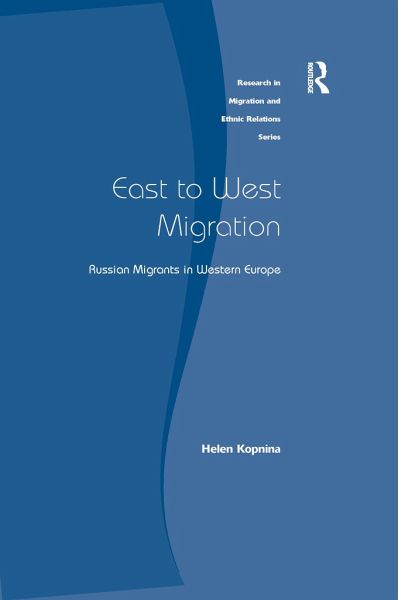
East to West Migration
Russian Migrants in Western Europe
Versandkostenfrei!
Versandfertig in 1-2 Wochen
55,99 €
inkl. MwSt.
Weitere Ausgaben:

PAYBACK Punkte
28 °P sammeln!
The collapse of the communist regimes in Eastern Europe brought widespread fear of a 'tidal wave' of immigrants from the East into Western Europe. Quite apart from the social and political importance, East-West migration also poses a challenge to established theories of migration, as in most cases the migrant flow cannot be categorised as either refugee movement or a labour migration. Indeed much of the trans-border movement is not officially recognised, as many migrants are temporary, commuting, 'tourists' or illegal, and remain invisible to the authorities. This book focuses on Russian migra...
The collapse of the communist regimes in Eastern Europe brought widespread fear of a 'tidal wave' of immigrants from the East into Western Europe. Quite apart from the social and political importance, East-West migration also poses a challenge to established theories of migration, as in most cases the migrant flow cannot be categorised as either refugee movement or a labour migration. Indeed much of the trans-border movement is not officially recognised, as many migrants are temporary, commuting, 'tourists' or illegal, and remain invisible to the authorities. This book focuses on Russian migration into Western Europe following the break-up of the Soviet Union. Helen Kopnina explores the concept of 'community' through an examination of the lives of Russian migrants in two major European cities, London and Amsterdam. In both cases Kopnina finds an 'invisible community', inadequately defined in existing literature. Arguing that Russian migrants are highly diverse, both socially and in terms of their views and adaptation strategies, Kopnina uncovers a community divided by mutual antagonisms, prompting many to reject the idea of belonging to a community at all. Based on extensive interviews, this fascinating and unique ethnographic account of the 'new migration' challenges the underlying assumptions of traditional migration studies and post-modern theories. It provides a powerful critique for the study of new migrant groups in Western Europe and the wider process of European identity formation.





